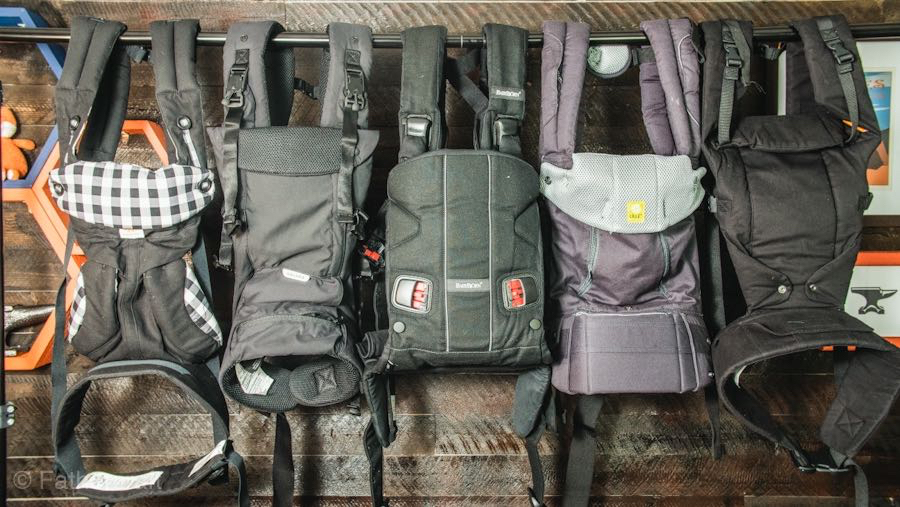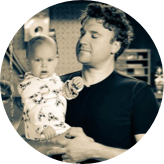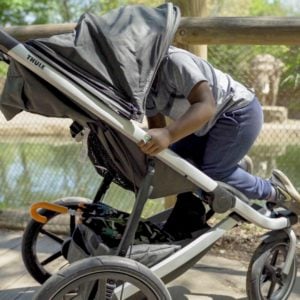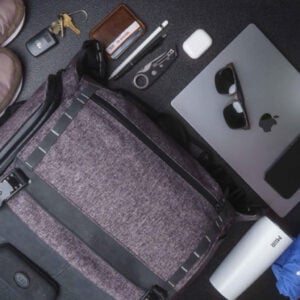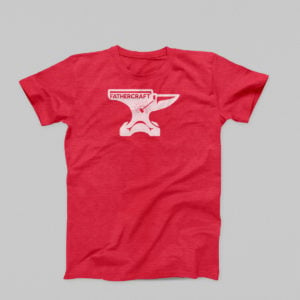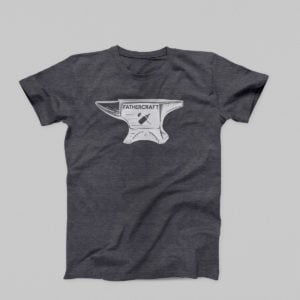From bouncy seats, play-n-packs, strollers, and bassinets, when you are a new parent, you are not only committed to your child, but also a whole lot of stuff everyone tells you that you cannot live without. A lot of these things are optional, of course, and nothing will drain your wallet like the guilt of feeling like you have to get something or you’ve become a complete failure as a parent. Take a couple seconds and take some deep breaths, because this is the low-down on our picks for the best baby carriers of 2022.
In this post we’ll:
- Introduce you to the basics of baby carriers
- Show you how we review baby carriers
- Give you our picks for best baby carriers of 2022
- Explain why we don’t recommend slings and wraps
- Talk through a few baby carrier FAQs
What is a baby carrier?
Baby carriers have literally been around for thousands of years, and other than the materials they are constructed with, not much has changed since people were hunting with stone tools and trying not to get stomped on by wooly mammoths (and here you thought you had it hard as a parent since your in-laws live out of town). Any typical baby carrier allows an adultto contain their squirming and wriggling bundle of joy close to their body so they can have better motility. In case you haven’t noticed, babies aren’t too great at keeping up with adults, yet somehow even more troublesome when it comes to running off hundreds of yards in the blink of an eye. A baby carrier is a great way to keep them close and give their little legs or knees and hands a break so you can get things done. A typical baby carrier utilizes a set of adjustable straps and a harness to keep them in place, either facing you or facing away. In antiquity, a baby might have been held on a backboard in a backpack type of setup. Side note: yes it’s possible to wear a front baby carrier with a baby in it and a backpack — even a totally sweet mens diaper backpack — at the same time … just put the baby carrier straps underneath the backpack straps, not the other way around, for safety’s sake. Today, we have ripstop nylon webbing, plastic, and foam rubber cushioning to replace animal hides and a plank of wood, but the concept is pretty much the same. It all transfers the weight of the baby or toddler to be incorporated with your center of gravity to keep them close, safe, and comfy. So comfy, in fact, that most of the time your baby will probably be snoozing in their carrier as you do all the heavy lifting.
Why do I need a baby carrier?
There is a reason that when compared to bouncy seats, baby toys, and other parenting gear that baby carriers have been around the longest: as a parent you are going to need to do other stuff besides staring adoringly at your baby. Even though your baby might disagree with that idea. Baby carriers are like getting your hands back after a long time of just carrying your baby around. They let you be more mobile, walk at an adult pace, and allow you to have access to the world around you without lugging a stroller around. If you like hiking, walking for fun or exersize, going to the store, doing yard work, or many other activities you might have once taken for granted–you are going to want a baby carrier. Like any backpack, one of the big advantages of having a baby carrier is storage space. They have pockets! A good baby carrier also dispaces your baby’s weight evenly across your body and gives them a very comfortable way to transport them with you. Compared to carrying your baby around in your arms all day, a baby carrier is critical for just about any activity where walking is going to get you places and strollers are just going to be a drag. The other big reason to use a baby carrier is to keep your child close to you for security as well as just bonding with your kid, which is great for their emotional development. Whether you choose a front mounted carrier where your child rides on your chest or one where they can ride on your back, there are so many different designs to pick from.
Our baby carrier review methodology
For Fathercraft’s baby carrier reviews, we evaluate carriers across a multi-point framework based on what we’ve found to be the most useful features we’ve tested and personally used over the years across four different kids in two states and a variety of conditions and activities.
For our reviews, we consider these features while we spend an extensive amount of time using each carrier — at least two months — and take detailed notes, photos, and videos along the way. Each one of our reviews consolidates our experience into a concise review and include our thoughts on what was awesome about the carrier, what we wished were different, and our final verdict.
Ok, one last thing before we get into the list: Fathercraft is reader-supported, meaning, at no cost to you, we may earn a commission if you buy after clicking an affiliate link. Learn more. Also, we are a participant in the Amazon Services LLC Associates Program, an affiliate advertising program designed to provide a means for us to earn fees by linking to Amazon.com and affiliated sites.
Best Baby Carriers for 2022
You might wish you had four hands as a parent, and while there’s no baby carrier that can multiply appendages (yet), an awesome baby carrier means you can comfortably keep the two you already have. You’ll find literally dozens of baby carrier options are available to you, so we did a lot of research before even selecting the most popular carriers to field test. Whether you need to explore different types of baby carriers or find the best affordable baby carrier, here are the trophy winners for the best baby carriers for dads, and beyond.
Check out our video of some of our top baby carrier picks to see a more in-depth review of our picks and the runners up. (And before you start worrying that this video is from 2019 … 1) it is, 2) not that much has changed in the baby carrier space since then—though, a few have gotten upgrades, keep reading).
Best baby carrier for newborns—the Ergobaby 360
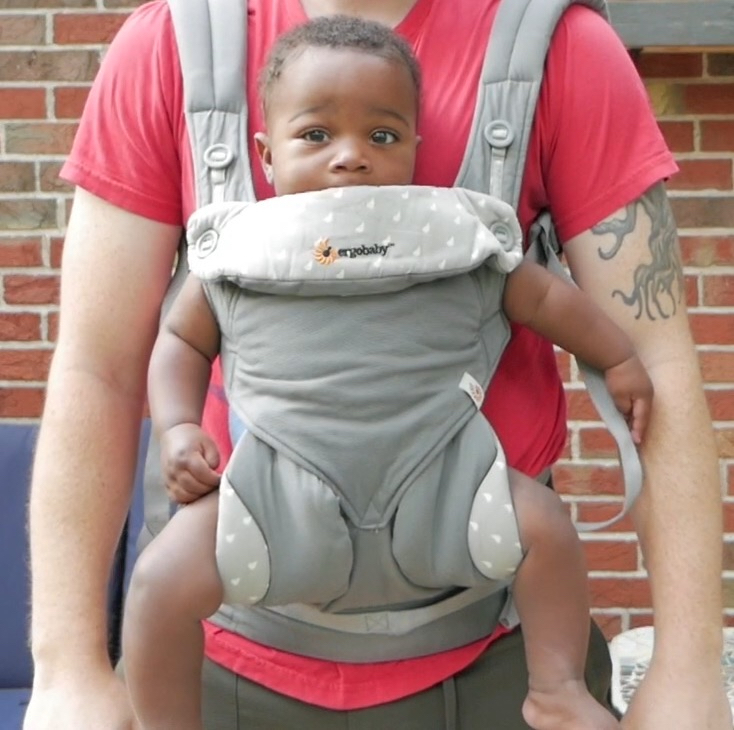
We consider this the best option for newborns because it feels structured and sturdy, plus it has a well-thought out system for new babies. Also, it’s our co-founder John’s wife’s favorite overall carrier. Ergobaby is probably one of the more ubiquituous systems, with a following that made you surprised anyone else made newborn carriers. Though there are competitors, Ergobaby knows their stuff and holds the title for a good reason.
Some drawbacks of the Ergobaby are difficult to reach adjustment straps, which can make it difficult to get the right sizing and comfort for you, especially if transitioning from a jacket or coat to looser fitting summer clothes. Though the material is sturdy, it can be a lot, leading to sweating in spots and extra weight to lug around. The additional newborn support system is also another element that you will have to fiddle with and adjust until your kiddo grows out of it.
Easiest baby carrier to use—the Baby Bjorn Carrier One
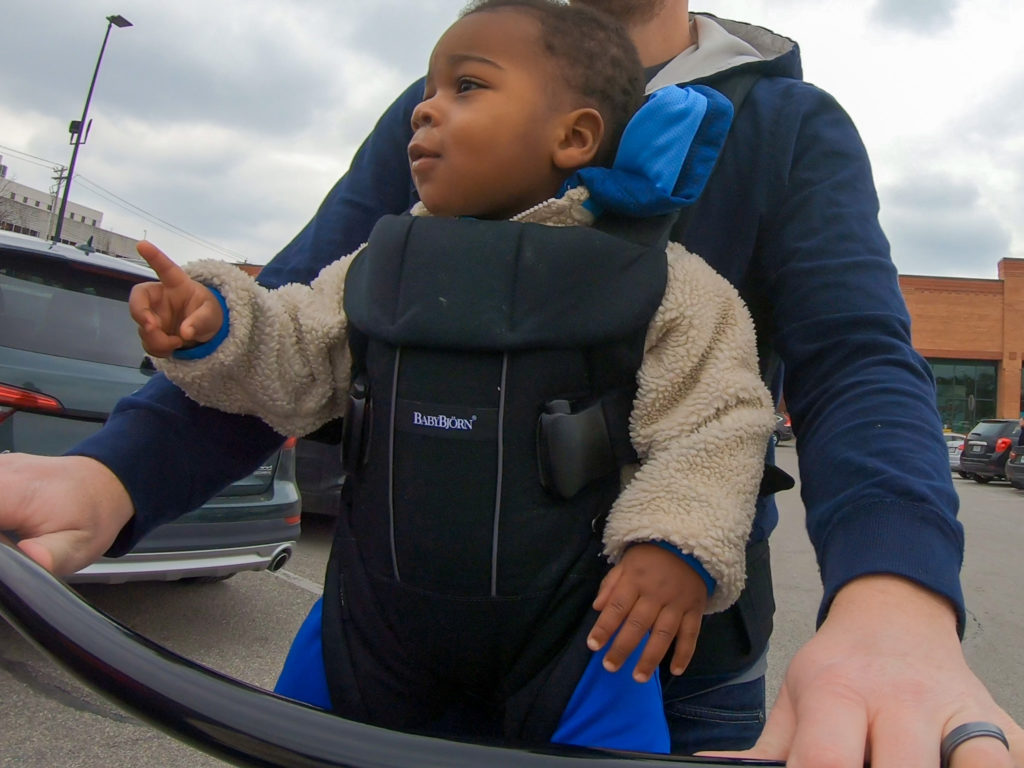
We actually like the Baby Bjorn a lot, the major drawback is that this sucker is heavy and that extra weight can also transfer into holding on to lots of body heat. Still, the grandaddy of baby carriers wins for easiest to use, because the printed-on instructions come in handy more than you’d think.
Drawbacks of the Baby Bjorn include the weight of the carrier, the conspicuous lack of pockets, and the soft padding which limits breathability of it against your skin. Also the pricepoint is a little bit high, being at the top end of the baby carrier scale. The waist belt fastener is also an issue when it comes to comfort, since you will notice it against your back, and probably wish you didn’t after a long enough time in this system. Ease of use makes up for these shortcomings, however, which will allow you to adjust the system to your body and then clip your child into it after.
Shop Baby Bjorn carriers on Amazon
Overall best baby carrier—the Colugo Carrier
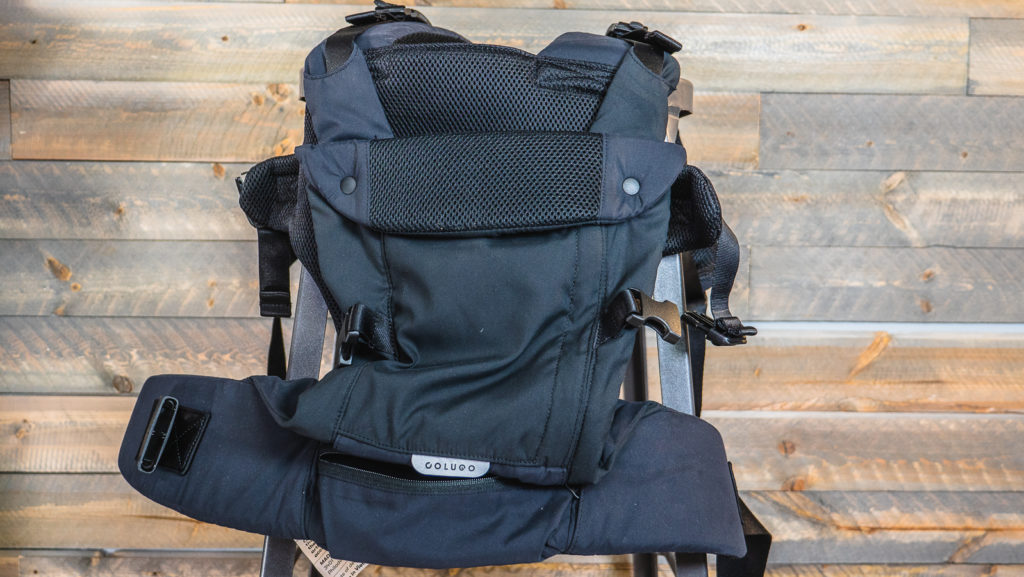
We think the Colugo carrier is awesome. It’s easy to use, it features lots of pockets, magnetic buckles, and more. Plus, at just $145 it’s among the most affordable options out there, and the company also offers a 100-day in-home trial. The high points of a good baby carrier should be a convergence of ease of use, comfort, and affordability. The Colugo hits all the points when it comes to best baby carriers for dads.
The clips allow for quick attachment thanks to the magnetic clips, which are also much safer to use than the standard plastic spring clips. If you’ve ever accidentally caught a baby leg in one of those while getting clipped in, you’ll know what we mean. The plethora of pockets for phone, keys, kid-stuff, wet wipes for jam and other kid-goo, and other stashing will make you feel like a commando. The lightweight material makes for easier breatheability and less pools of sweat on your lower back and torso. Colugo also features a 100 day guarantee. If you aren’t delighted with your baby carrier, you have just over three months to return it, no questions asked.
Some drawbacks of the Colugo are some pockets being difficult to reach, especially with bigger kids. Also, in spite of Colugo adding a back-carry function to this carrier, it can be a little bit difficult to move your child from the inward facing position on your chest to your back as indicated by instructions.
Read our Colugo baby carrier review
Shop the Colugo carrier on their website
And … the rest of them
As we mentioned earlier, there are a ton of baby carriers on the market. The Ergobaby 360, Baby Bjorn, and Colugo constitute our top picks, but we didn’t stop testing there. If you’d like to go deeper, check out our reviews of the Beco Gemini here and the Lilliebaby Complete here.
You can find all of our baby carrier reviews here.
Wait, what about slings and wraps? Why aren’t there any on your list of best baby carriers?
We’ll keep this short and sweet: we do not recommend using “sling” or “wrap” style baby carriers at all. Here’s why:
- Sling and wrap style carriers have been shown in studies to be less than beneficial for hip health in babies.
- These types of carriers are also more prone to user error, which can—and we’re talking worse case scenario here, but in our opinion worst case scenario is absolutely worth considering when it comes to your baby—lead to dangerous falls or even suffocation.
So, you do you, but we don’t recommend.
Baby Carrier FAQ
You probably have a lot of questions on the topic, and we are here to help! This list is by no means exhaustive, but it is a good place to start on your search for the best baby carriers.
Do I need a a baby carrier?
Yes. A great baby carrier is a modern parenting essential. Wearing your baby hands free allows you to shop, clean, fold laundry, rake, hike, brew beer, you name it. Investing in a good baby carrier that works for you and your family will go a long way to helping make parenthood more manageable and enjoyable.
Are baby carriers safe for newborns?
To answer that question, first, always read the instructions that come with your baby carrier. This will tell you the minimum weight limit for a given baby carrier, as well as whether your carrier needs special settings or inserts to accommodate a small baby.
The International Hip Dysplasia Institute identifies the carriers on our list of picks to be safe and comfortable for your baby. A carrier that doesn’t comply with these standards could potentially cause health problems with your growing child, especially in musculo-skeletal development. Remember, your baby is still growing and needs reliable and safe support for healthy development.
What about neck support?
Your newborn will probably feel too small and ‘floppy’, particularly in the neck, for you to feel comfortable putting her in a carrier. Over time, the muscles in your child’s neck and shoulders will be able to support their head, especially if being jostled as you move. You’ll need to pay extremely close attention to head and neck support. As a result, you’ll want to wait a bit before putting your baby in a carrier. But, she’ll grow fast and soon you’ll likely get the sense she’s ready (you can always ask your pediatrician, too).
When can I start carrying my baby in a carrier?
Though baby carriers are often listed as starting at 0 months on up, you should be careful in considering not only your baby’s safety but also your own personal comfort level of using a carrier. Even with neck support systems (such as with the Baby Bjorn), as a parent, you need to make the call. It’s okay to hold off until you feel your child is ready. Again, when in doubt, ask your pediatrician!
What are the weight ranges for a baby carrier?
Most baby carriers will have the weight ranges printed on the carrier. For some, the range is for as little as 7 pounds, all the way up to 40 lbs. With bigger kids, use your own discretion! You don’t want to injure yourself, and potentially your child, if your kiddo is too heavy to carry around, regardless of manufacturer suggestions. Large kids can stress out the fabric and fasteners as well, and even become problematic when hooking them in or taking them out of the carrier.
How much does a baby carrier cost?
Most baby carriers range from about $125 – $190. Some carriers retail for as high as $370. It’s worth noting that we’re talking about structured baby carriers here. Wraps and slings, which offer much less structure, tend to be less expensive, ranging anywhere from $25 – $65. Though in our opinion–and we’ve done the research–wraps and slings are not ideal when it comes to baby carriers for a number of reasons. Though the price point may be attractive for the best affordable baby carriers, there is no substitution for safety vs. cost.
What are the most popular baby carrier brands?
Baby Bjorn is arguably the best known and most well-established baby carrier brand on the market, but a host of new baby carrier brands are out there now, offering parents more options than ever. At Fathercraft, we’ve reviewed the Colugo, Baby Bjorn, Ergobaby, Lilliebaby, and Beco Baby carriers.
What is the best baby carrier for hiking?
We haven’t personally tested a ton of baby carriers for hiking here at Fathercraft, but we do have a friend of the site who has extensively field tested and recommends Osprey brand hiking carriers. Osprey has been making backpacks, luggage, and even baby carriers for a very long time. Not only are they a favorite among outdoor enthusiasts, but they also have the warranty to back up their product. Osprey products also carry a lifetime warranty that means they will replace their products if they break or become damaged.
Check us out
At Fathercraft, we test all sorts of baby gear so you don’t have to. As parents ourselves, we’ve been in the trenches for a long time now and hope to help out other new parents when it comes to the wide selection of baby equipment that is out there. Check our website and YouTube channel (like and subscribe, if you would) for more content!
